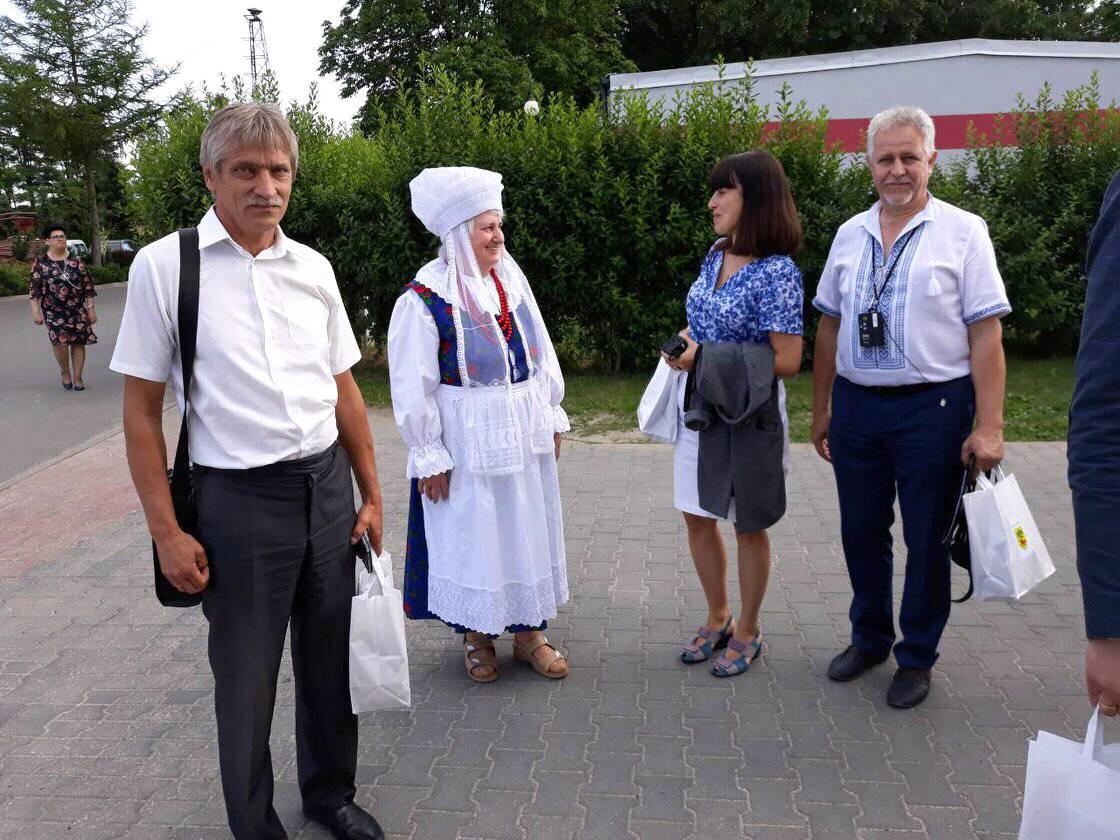Story on how Kharkiv Oblast residents learned to develop villages from Poles
Rural areas’ development through the development of the public was the way Poland decided to go over 20 years ago. And today, the peasants have good living standards and working conditions. Representatives of the Kharkiv Oblast studied the successful experience of the neighbours in the Polish Wielkopolskie Voivodeship.
Peer to Peer
Within the framework of the pilot Peer to Peer project the representatives of our region will learn and develop a useful case of how our neighbours managed to achieve a high level of rural areas’ development and what aspects of this successful algorithm can be implemented in the Kharkiv Oblast. This initiative was developed by the European Committee of the Regions' Task Force on Ukraine, it is aimed at developing partnerships between the regions of Ukraine and the European Union, as well as exchange of experience that promotes local and regional development.
Five pairs of equal partners were chosen for the pilot project, with the Kharkiv Oblast in the list.

“On 12 February 2018, with the participation of MinRegion and the U-LEAD with Europe Programme, selection participants made their presentations of what they want to study and get as the result. Then the partner was defined – the EU region, where this segment is the most developed,” says Olena Kulyk, head of the department on local self-government, hromada development and international relations of the executive branch of the oblast council, coordinator of the Peer to Peer Initiative of the Kharkiv Oblast Council.
All partners of the pilot project met each other on 8 March in Brussels in the frames of the meeting of the CoR Task Force on Ukraine. The Wielkopolskie Voivodship (Poland) became the partner of the Kharkiv Oblast.

Village promotion
The next stage of the pilot Peer to Peer project lasted from 10 to 16 June. The numerous Kharkiv delegation, that included representatives of various levels of government, public organisations, businessmen, farmers and scientists, made a study visit to the Wielkopolskie Voivodeship.
The schedule was very busy – 12 hours a day. There are many different institutions in Poland that do not duplicate functions, but intensify each other's activities. And they all work to develop gminas.

“We were very pleased to know that we work alike our European colleagues,” said Lyudmyla Nemykina. “Within one of its competitions, the Wielkopolskie Voivodship supports the initiatives of their communities. The only difference is that we finance 50% from the oblast budget, 45% from the local budget and 5% are covered by the contestant, while in the Polish Voivodeship, 70% are covered at the expense of the voivodship budget, and 30% - of the community itself.”
Agricultural tax
The Kharkiv delegation observed the work of the Agricultural Chamber (resembles the Association of Local Self-Government Bodies of the Kharkiv Oblast). This institution provides support to agricultural producers.
The Agricultural Chamber is maintained at the expense of gminas - 2% of agricultural tax. By the way, Poland has a very interesting approach to charging an agricultural tax.

The Polish agricultural sector has clear rules of the game, established by the state. Farmers are provided with lots of preferences, yet there are certain conditions.
Local groups pf producers
The Kharkiv delegation found the Polish experience in creation of local groups of producers rather interesting. Small farmers are grouped together, produce a single production standard, calculate their business plan: the kind of crop and estimated harvest per year.
At the same time, there are agricultural cooperatives, created 40 years ago.
Development through projects
In Poland, funding for all sectors is carried out through projects: if you wrote a good project – you get the money for development. Thus, farmers and villagers take an active part in this process. There is even a special institution in the country that helps farmers to write grant projects, called the Agricultural and Consulting Centre.

Internship of the Kharkiv delegation representative in the Wielkopolskie Voivodship will be the next stage of the pilot Peer to Peer project. The candidate is still under approval.
The full version is available in Ukrainian – please click HERE
Share the news:
16 July 2025
Національний діалог до 5-річчя нового...
21 липня 2025 року відбудеться Національний діалог «5 років нового територіального устрою України – виклики,...
15 July 2025
Сила двох: співпраця ЦНАП і ДПС як один зі шляхів зміцнення бюджету громади
Сила двох: співпраця ЦНАП і ДПС як один зі...
Ще 2019-го мешканці Мерефи почали питати, чому за паспортом і субсидією можна прийти до ЦНАП, а за карткою платника...
15 July 2025
Навчання для підприємців із культурних та...
Швейцарсько-український проєкт «Згуртованість та регіональний розвиток України», UCORD та формація Lanka.pro...
15 July 2025
Mykola Kovalenko, Head of the Ocheretyne Military Administration of the Pokrovsk district, in the Donetsk region,...
